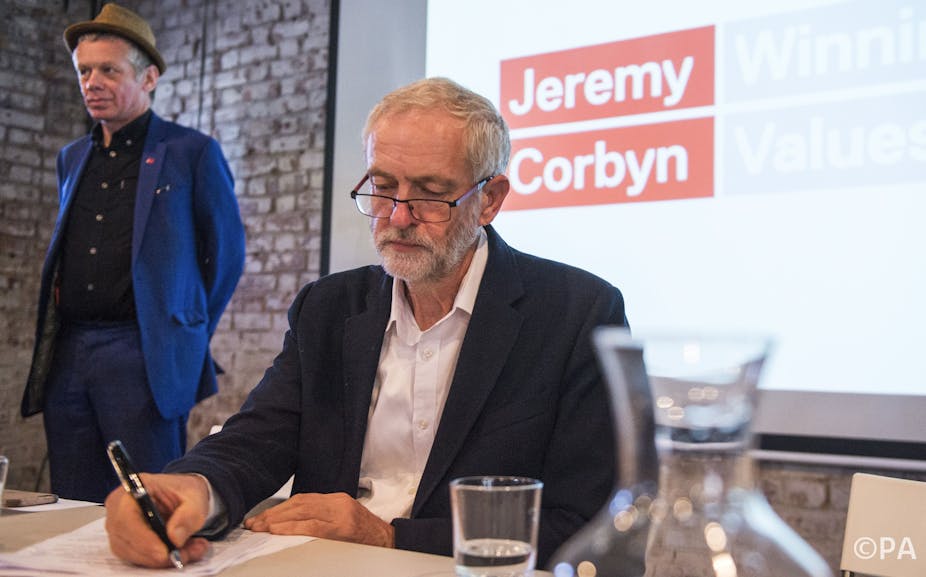While the Labour Party recently launched their Digital Democracy Manifesto with as much fanfare as they could muster, the reaction to it could be safely described in social media terms as “meh”. There was derision from those who deride everything Corbyn says, and very little from the rest of the media, who moved on to more important things such as after work drinks and JK Rowling’s spat with Corbyn’s Twitter followers.
Yet this manifesto, such as it is, does matter – just not in the way that either Corbyn or his opponents might imagine. How governments approach the internet is very important, and until now Labour’s intentions have been unclear. Now, in just three pages of scant detail, the manifesto manages to be inspiring, disappointing, and in parts distinctly alarming.
The idea of a People’s Charter of Digital Liberties is a concept that has been raised by various people and organisations over the last decade in various guises – for example, the Internet Governance Forum’s charter of human rights and principles for the internet developed between 2009 and 2011. But it is also an area in which the UK has been distinctly backward. Corbyn’s proposals, despite fine aspirations to tackle serious issues such as privacy, feel naïve and old-fashioned. It refers to unspecificed “other hi-tech methods”, emphasises CCTV which seems a little old-fashioned in the current environment, and fails to even mention commercial invasions of privacy (Facebook, Google and so forth), all of which makes it seem out of touch.
That feeling is repeated throughout. The manifesto’s promise of a Universal Service Network of high-speed broadband reaching even rural areas is barely different from what all governments have promised – and generally failed to deliver – for the past 20 years. Hardly revolutionary.
The idea of an Open Knowledge Library – an “on-line hub of learning resources” – is reminiscent of the old National Council for Educational Technology’s ideas from the early 1990s, although open access to state-funded research is an interesting take on it, and a subject of considerable debate in academia.
Placing “Community Media Freedom” at the heart of the manifesto is welcome, but the blithe statement that Ofcom will be able to protect citizens from the “manipulation of software algorithms for private gain” betrays a lack of understanding about how these things work. It seems as if Corbyn wishes to undermine the business models of Google, Facebook, Apple and Amazon at a stroke, without realising that this is what he is proposing.
Another eyebrow-raising statement is to reform intellectual property law “so that both producers and consumers benefit”. If only it were that easy.
Alarm bells
However, it’s the Digital Citizen Passports that are the most worrying part of the manifesto. This might turn out to be one of two things. It might essentially be a restatement of the existing Gov.uk Verify system, in which case why mention it at all? Alternatively, it’s an indication that there will be a more all-encompassing citizen ID for the internet – perhaps something not a million miles from the National Identity Register that was introduced by Labour in the 2000s and scrapped by the coalition government in 2010.
Alarm bells will ring among those concerned with privacy and civil liberties at the statement that Digital Citizen Passport holders will have their place in the electoral role updated when they move home, as this suggests a national citizen address register. The blasé assurance that privacy will be protected from hackers by “strict laws” reveals a fundamental misunderstanding of how vulnerable personal data is to theft and loss, the inevitability of function creep, and the deeper civic implications of this kind of system. It is no coincidence that authoritarian regimes around the world approve of this sort of approach – and that UK citizens (if not always UK governments) have opposed such national identity systems strongly since World War II.
There’s a huge missed opportunity in this manifesto, too. Labour has had a very poor record on civil liberties in the last two decades, and this, particularly for Corbyn, could have been a chance to break from the past. With the authoritarian-leaning Theresa May as prime minister, it should have been obvious for Labour to position itself as a protector of civil liberties. There are strong reasons for Labour to do so: surveillance has often been used against those on the left such as trades unions and protest groups, and is still primarily used as a tool of the powerful against the weak.
Similarly, censorship and other restrictions on freedom of speech are things that Labour should be strongly against, yet are conspicuous by their absence. Plans to force ISPs to filter content under the pretext of blocking pornography represent significant threats to free speech, yet go without mention. Chris Bryant MP was among those who noted there was no mention of tackling online abuse either. He is right to suggest it should be discussed, but quite wrong that the answer is “new laws”. There is already more than enough law in the area; instead there is a dearth of imagination.
And that is really the point: we need new approaches to these important issues around the internet’s place in our world. There are many on the left who understand them and could have helped produce something more forward-looking and in tune with the state of the internet today. It is a shame Corbyn could not look outside his inner circle to find them.

